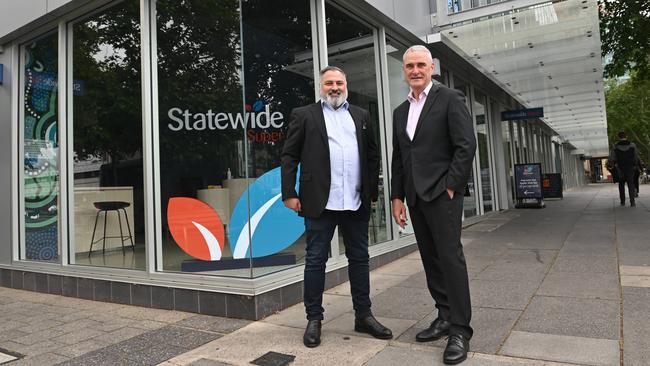SA must tap local capital to prosper, says Statewide Super
Unlike Queensland, NSW and Victoria, South Australia has not established a state-based pool of capital. This is a missed opportunity and the state budget next week may be a good time to consider it, says funds manager Statewide Super.

SA Business
Don't miss out on the headlines from SA Business. Followed categories will be added to My News.
On November 10, the South Australian Government will deliver its most important Budget since coming to power in 2018.
Off the back of the recent Federal Budget, we suspect it will follow a similar path and will try to stimulate the economy via an increase in state debt.
There must be zero appetite for tax increases, and other sources of potential revenue such as privatisations are understandably off the table.
We strongly suspect direct spending by the government into “shovel-ready” projects makes sense. We also believe that a few areas such as the arts, tourism/hospitality, education and care/aged care need help, too.
Social housing, particularly with local housing prices once again rising, provide infrastructure spending and meet local needs.
The state finances its debt by issuing bonds in the market via the South Australian Financing Authority. Without trying to get too technical, the key difference between federal debt and state debt is the issue of public money.
SA is not a sovereign issuer of its own currency, meaning it cannot create money, so the amount of debt, the rate paid and the tenure matters a lot.
Unlike the Federal Government, it has financing constraints on the amount it can borrow. All things being equal, the Federal Government can borrow more to help the states but, unfortunately, has declined to do so.
To help the state finance its debt at lower rates, the Reserve Bank of Australia has signalled lower-for-longer interest rates and unconventional monetary policy.
It can buy state debt in the market with the intent of lowering interest rates and, therefore, provide the state with more room to borrow.
The ability of the state to borrow at much lower rates over the long term provides the government with policy tools to conduct long-term productivity, enhancing spending reforms.
Other forms of local stimulus for SA come from early access to superannuation.
For example, SA members in Statewide Super have accessed more than $200m of their retirement savings for use over the past six months. We believe this has helped and, indeed, is one of the largest stimulus measures for the local economy to date.
But there are limits to this and, in the extreme, it collapses the goal of a dignified life in retirement.
The next available deep pool of money comes from local superannuation savings as the last remaining large pool of funds for the state. In SA, the two largest super funds, Super SA and Statewide Super, collectively manage in excess of $40bn in assets under management.
Unlike Queensland, NSW and Victoria, we have to date not established a state-based pool of capital. We believe this is a missed opportunity.
Why? Well, long-term interest rates remain at record low levels and with the state near its borrowing capacity limits, a larger pool of local capital provides the opportunity to step in.
Firstly, for any super fund, it’s important to generate returns. Given the current world of very low returns, a local fund can provide a portion of its total assets towards local sources of equity or debt financing.
This means investing in local start-ups, providing capital to expanding business and helping build infrastructure. It also means the ability to make returns on local investments with an immediate impact on the local economy. This is what happens every day in Sydney, Melbourne, London, New York and Silicone Valley, just to name a few.
A larger pool of capital also benefits the members in the fund via lower fees and, hopefully over time, builds out a local funds-management community.
Since the global financial crisis, the world has backed away from the hyper growth towards globalisation.
The current COVID-19 crisis has increased the trend towards more localised sources of growth and onshoring of sustainable energy and advanced manufacturing.
All of this will require greater private investment needs and local capital provides the best source for this important work.
Tony D’Alessandro is chief executive of Statewide Super and Con Michalakis is the organisation’s chief investment officer

